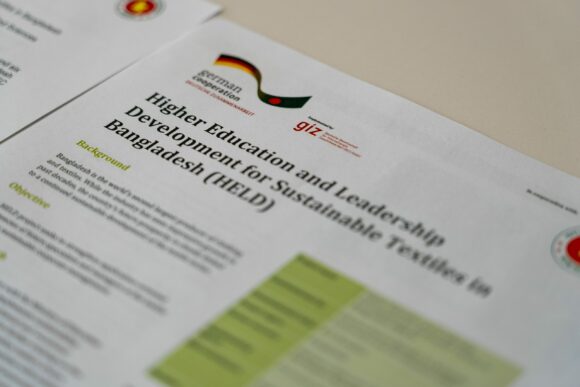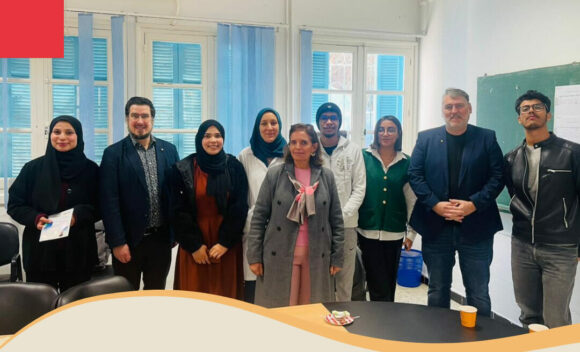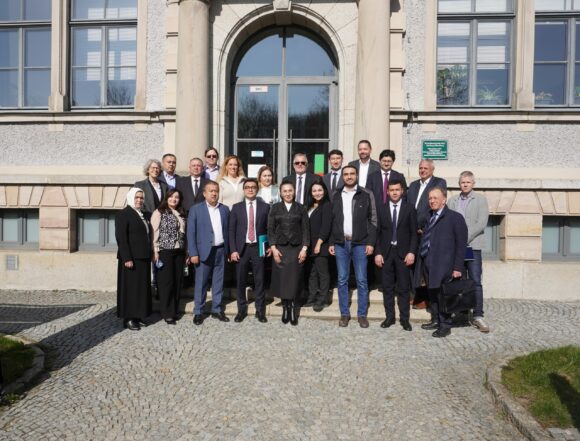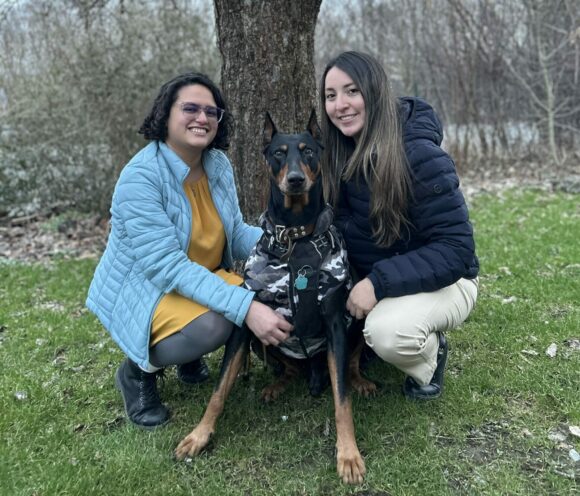With around 3,600 students, Hof University of Applied Sciences is one of the smaller universities in Bavaria. Since small can also mean fine, the Upper Franconian university is now putting its many years of expertise in the field of knowledge and technology transfer to good use in a cooperation with Tunisian universities.
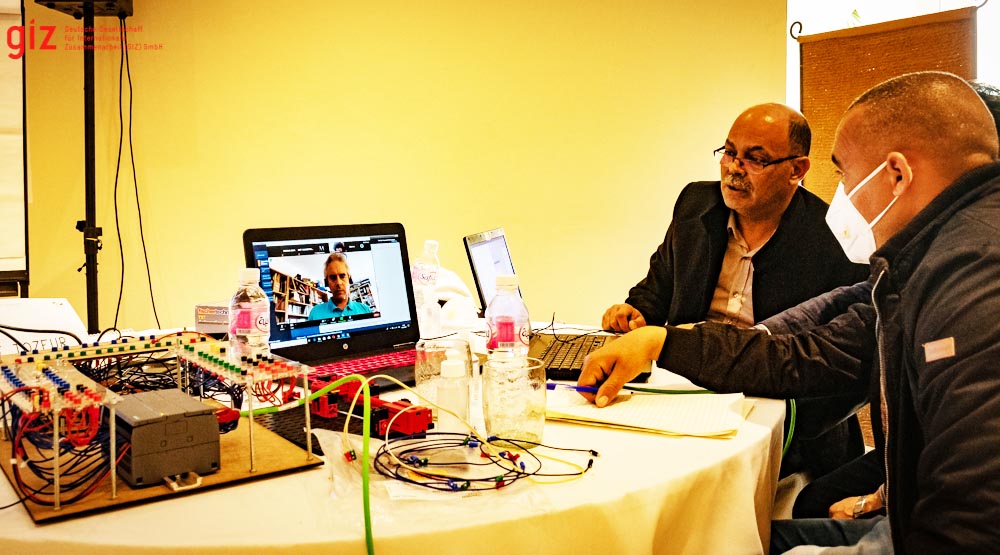
To improve the prospects of employment for young students in Tunisia, and thanks to the support of the Bavarian State Chancellery and the Deutsche Gesellschaft für Internationale Zusammenarbeit (GIZ), the project “Supporting the Employability of Young Students” (ALEJE) was launched in fall 2019. The knowledge transfer field of action aims to enable university lecturers in Tunisia to train Tunisian students themselves on various electronic devices, among other things – in this case, primarily Siemens modules with a global standard. Only 20-30% of a student’s final year currently find a place in the Tunisian job market. The reasons for this can be found in the insufficient quality of the training as well as in the market conditions: The young people simply cannot find a job.
Bavaria supports
Tunisia is a long-standing partner country of the State of Bavaria and a priority country of the State Government’s Africa Package, with which the State of Bavaria aims to contribute to stability and development on the African continent. To support this, the Bavarian State Chancellery promotes various projects. Professor Valentin Plenk, a digital-savvy engineer and himself a researcher at Hof University of Applied Sciences, is contributing his special knowledge to the ALEJE project on automation technology
“It’s a development cooperation project and fits in with a university that is internationally perceived and networked.”
Prof. Dr.-Ing. Valentin Plenk
Valentin Plenk speaks French himself and can thus take charge of the training courses.
Physical packages, virtual training
The original plan was to conduct the trainings on site in Tunisia. But Corona has put a spanner in the works. Instead, online training is the order of the day. In preparation, many packages were packed in Germany with “hardware” from Fischer Technik and Siemens modules, which have already been unpacked at all six universities by the thirty or so instructors at the beginning of the year. “The directors and teaching staff, for example from Kasserine in central Tunisia, are happy about the technical equipment with a total value of around 35,000 euros as well as the practice-oriented TIA training led by Prof. Plenk,” reports Franka Strößenreuther from GIZ. The training itself took place at the end of February in a hotel in Tunis due to the applicable corona restrictions. The stream was brought from Germany to Tunisia via large screens and also recorded at the same time so that other teachers could benefit from it later.
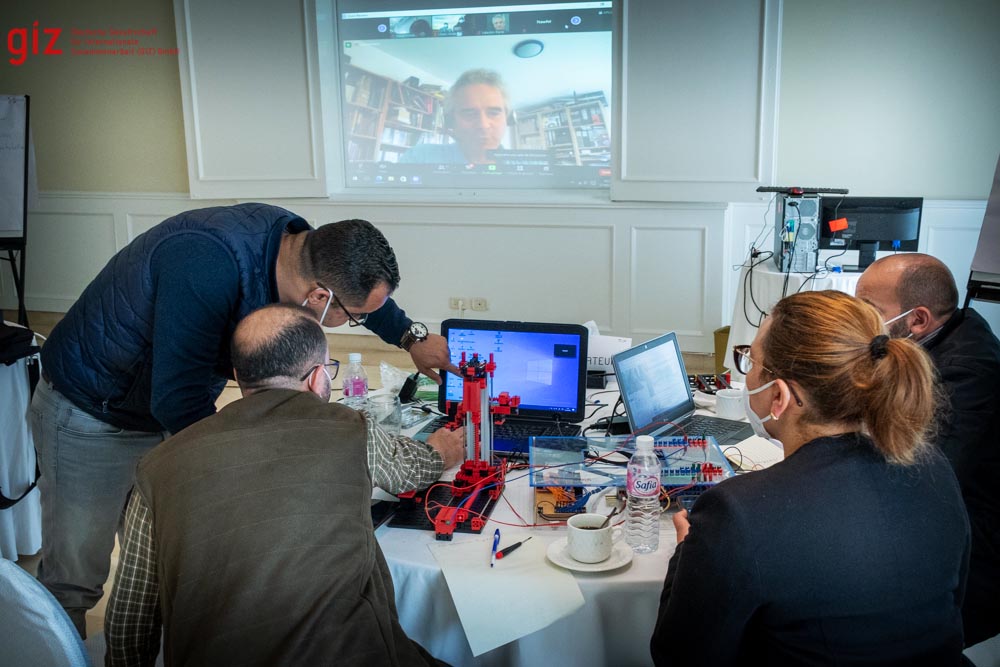
Strength in automation technology
TIA stands for “Totally Integrated Automation” and means that Tunisian teaching staff are trained in the interaction of automation components, the software involved and other systems. Tunisia in particular is strong in the field of automation technology, similar to Upper Franconia. This is partly due to the fact that a large number of automotive suppliers – including companies from Germany and Bavaria – have now settled in the Maghreb state and are also producing there. This means that specialized workers in the fields of mechatronics and electrical engineering are increasingly needed.
The project supports the six Tunisian universities in orienting the fields of study mechatronics, electrical engineering and general management skills to practical needs. For Valentin Plenk, an important didactic goal is for instructors to teach students how to learn independently and solve future tasks. “Above all, I emphasize interaction and participation formats, rather than frontal teaching,” says Plenk.
Catalysts for economic development
From the Bavarian side, there are a total of five projects whose funding notices were handed over by Minister of State Dr. Florian Herrmann in Munich at the beginning of September to GIZ, the Bavarian Industry Vocational Training Centers, the Hans Seidel Foundation and the Fraunhofer-Gesellschaft e.V..
In their pioneering role, the partner universities in Tunisia are of crucial importance for improving the employability of students in the long term. They act as catalysts for sustainable socio-economic development in the project regions and provide career prospects for young Tunisian students
With the training measures, we are creating practical study programs ” and adds, “In addition, the project can lay the foundation for establishing longer-term partnerships between Hof and Tunisia, which would make me very happy.”
Prof. Dr.-Ing. Valentin Plenk
So it’s all in the spirit of intercultural knowledge and technology transfer.
Promotional film for the Tunisian students:




